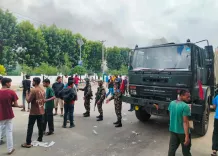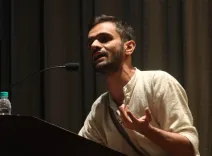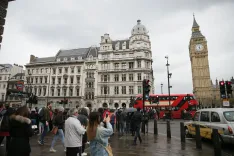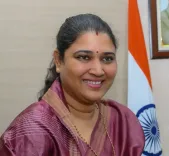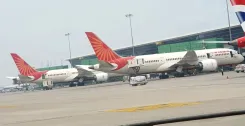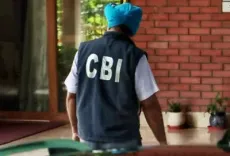The Turning Point for Trudeau and His Contentious Anti-India Stance
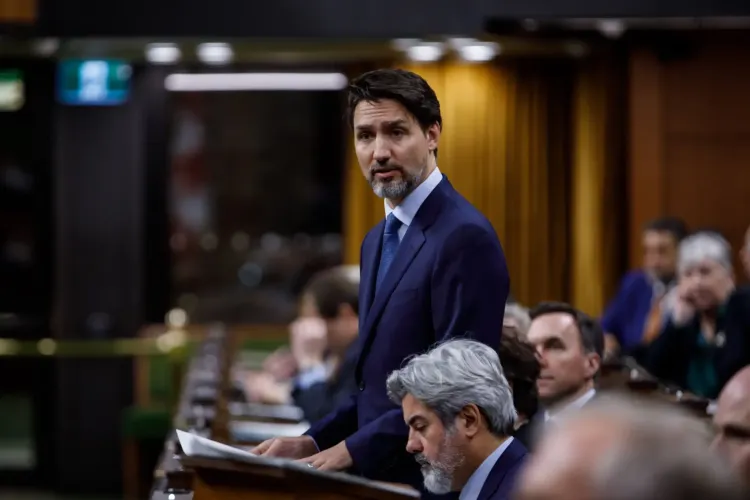
New Delhi, Jan 6 (NationPress) With Justin Trudeau's declaration on Monday that he intends to resign as the Prime Minister of Canada and leader of the Liberal Party once a new leader is chosen, the stage is set for a notable transformation in Canadian politics. This announcement has also sparked some optimism regarding the frayed ties between India and Canada, which plummeted to a new low in 2024, presenting an opportunity for improvement this year.
The relationship between India and Canada deteriorated significantly after Trudeau made allegations in the Canadian Parliament last year, claiming there were credible allegations linking India to the assassination of Khalistani terrorist Hardeep Singh Nijjar.
A substantial diplomatic conflict ensued when Canada labeled India's High Commissioner and other diplomats as persons of interest in the investigation surrounding Nijjar's death.
India refuted these allegations, branding them as absurd and motivated, accusing Ottawa of harboring extremist and anti-India factions within its borders.
In October, during his testimony at Canada’s foreign interference inquiry, Trudeau acknowledged that India had been pressing for evidence regarding the accusations made by Canada concerning the killing of the Khalistani terrorist, yet his government could only provide intelligence, lacking hard evidentiary proof.
In a strong response, India stated that this only confirms New Delhi's ongoing position that Canada has not presented any evidence to support the serious allegations made against India and its diplomats.
The spokesperson for India’s Ministry of External Affairs, Randhir Jaiswal, stated, "The responsibility for the damage that this cavalier behaviour has caused to India-Canada relations lies with Prime Minister Trudeau alone."
As Khalistani extremists in Canada openly targeted Hindus and their places of worship, Prime Minister Narendra Modi also spoke out against the Canadian government's leniency towards these groups, which received tacit support from Trudeau.
"I strongly condemn the deliberate attack on a Hindu temple in Canada. Equally appalling are the cowardly attempts to intimidate our diplomats. Such acts of violence will never weaken India’s resolve. We expect the Canadian government to ensure justice and uphold the rule of law," PM Modi expressed on X in November.
Analysts suggest that PM Modi’s clear message served as a warning not only to Khalistani activists but also to the Canadian government.
"Canada is on notice. Just to place this in context, the phrase 'such acts of violence will never weaken India’s resolve' in PM Modi’s post is as explicit a message as it gets that the Khalistani activists in Canada are state-sponsored anti-India groups of thugs, criminals, and terrorists," an analyst remarked.
Trudeau has faced intense criticism, ridicule, and backlash even within his own political circles.
Former Premier of British Columbia, Ujjal Dosanjh, vehemently criticized Justin Trudeau for his significant failure to manage the rise of Sikh extremism, asserting that the Prime Minister, like several other politicians, is catering to a well-orchestrated Sikh vote to tip the scales in closely contested elections.
"Trudeau, sociologically and politically, is an idiot, and you can actually quote me. I really don't care. Because he's an imbecile in terms of understanding how you build nations, how you build countries," Dosanjh stated in an interview with Canada's National Post on November 4 last year, coinciding with the day Khalistani extremists attacked Hindu devotees at the Hindu Sabha Temple in Brampton.
The 78-year-old, who previously served as Minister of Health in Paul Martin’s Liberal government, placed the blame directly on Trudeau for exacerbating the Khalistani separatist movement, which has now become a pressing issue in Canada.
"He’s never really understood that the vast majority of Sikhs are quite secular in their outlook, despite the fact that they go to the temple. Khalistanis are not a majority, and the fact that nobody speaks against them is out of fear. Through intimidation, Khalistani supporters dominate many of the gurdwaras in Canada. It’s Trudeau’s fault that Canadians now equate Khalistanis with Sikhs, as if we are all Khalistanis if we’re Sikhs," he added.
Prominent Sikh leaders, including former Punjab Chief Minister Amarinder Singh, have also harshly criticized the Canadian Prime Minister for supporting individuals with extremist inclinations.
Singh disclosed that he was acutely aware of Canada’s stance on Sikh extremism, which Trudeau not only ignored but also supported to strengthen his political base.
"I warned him unequivocally about Punjab’s issues with Canada. It had become a sanctuary for the Khalistani separatist movement, which no Punjabi desired, alongside gun trafficking, narcotics, and gangsters. I handed him a list of over 20 prominent individuals actively participating in this movement, some of whom were members of his cabinet, one of whom was seated next to him. I was assured that he would address these concerns. Conversely, since our meeting, these nefarious activities have proliferated," Singh stated.

